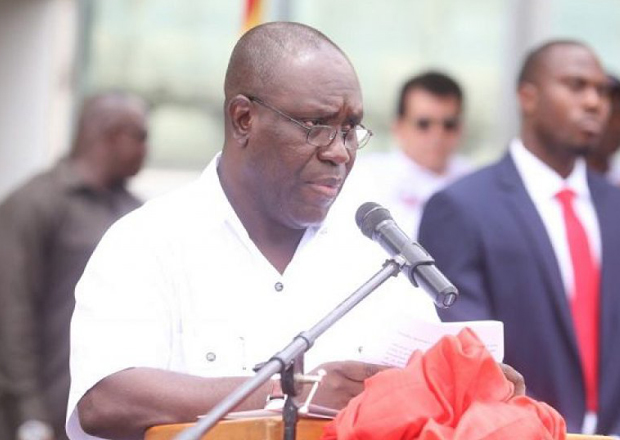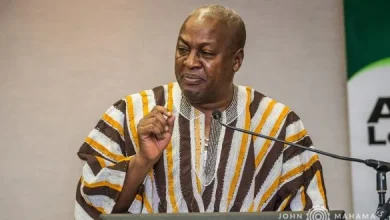Scrap Article 71, it’s unfair – TUC charges

The Trades Union Congress (TUC) has joined the call for the special salary and emoluments dispensation given to office holders under Article 71 of the 1992 Constitution to be scrapped, saying the provision is discriminatory.
The Secretary-General of the TUC, Dr Anthony Yaw Baah, said Article 71 had created a super-class of people at the expense of others, fuelling discrimination and injustice against other classes of public sector workers.
Speaking at the Institute of Economic Affairs (IEA) Constitutional Review seminar last Tuesday, Dr Baah said: “Article 71 smacks of discrimination between the political elite and the people.
Why should some public servants be placed under Article 71 and others treated differently?
We must either amend or change the Constitution and scrap Article 71”.
The TUC boss said Article 71 of the 1992 Constitution was also at variance with other provisions of the same Constitution such as Article 24 which stipulates “equal pay for equal work without distinction of any kind”.
Article 71
Article 71 office holders include the President, Vice-President, Ministers of State, Deputy Ministers, Speaker of Parliament, his Deputies, Members of Parliament, Justices of the Superior Court of Judicature, Members of the Council of State, and Chairpersons and Deputy Chairpersons of the Electoral Commission (EC); Commission on Human Rights and Administrative Justice (CHRAJ), the Auditor-General and the Administrator of the District Assembly Common Fund.
Others are the chairmen, vice-chairmen and members of the National Council for Higher Education, the National Media Commission (NMC), the Public Services Commission and the National Commission for Civic Education (NCCE).
Under Article 71 of the Constitution, the President, upon recommendation of a committee established by the President, determines the salaries and benefits of a chunk of the Article 71 office holders, while Parliament, based on a recommendation by the same committee, determines that of the President, the Vice-President, Ministers and Deputy Ministers and Members of the Council of State.
There has been intense public debate about Article 71 office holders, especially the bulk sum of money paid to some of them periodically that has come to be known as ex gratia in the public space.
However, Parliament and the Judiciary have rejected the notion that their members are paid ex gratia, explaining that their members only receive accumulated outstanding salaries and not ex gratia.
Constitutional review
The IEA event was on the theme: “Constitutional Amendment: Views and Reflections of the TUC” and it formed part of a series of lectures organised by the IEA for notable individuals and interest groups to share their views on areas of the Constitution that ought to be reviewed.
It was attended by a former Speaker of Parliament, Professor Aaron Mike Oquaye, who was the Chairperson for the occasion; a former Chief Justice, Justice Sophia Akuffo, and a member of the Council of State, Sam Okudzeto.
Some distinguished persons who have already mounted the IEA platform to share their views on the constitutional review include former President John Agyekum Kufuor, Justice Akuffo, Mr Okudzeto, the Majority Leader, Osei Kyei-Mensa-Bonsu; former Minority Leader, Haruna Iddrisu; former Chairperson of the NMC, Krabal Blay-Amihere, and international relations and governance expert, Dr Vladimir Antwi Danso.
Dr Baah’s presentation which dealt extensively with labour issues in relation to the Constitution also touched on the need to amend the Constitution to unite the country, spur development and limit the acrimonious partisanship which he described as the bane of the country’s development.
Protect public servants
Dr Baah advocated a robust enforcement of Article 191 of the 1992 Constitution would protect public servants from discrimination, dismissal and demotion without a just cause.
He said the current partisanship and political colourisation of the country had made public servants sacrificial lambs for politicians who, unjustifiably, sacked or intimidated them upon a change in government
“In 2017, the Secretary to the President wrote two paragraph letters to public officers, dismissing them with a two-hour notice.
Public sector workers must be protected and this provision must be extended to private sector workers,” Dr Baah added.
The TUC Secretary-General added that Article 86 of the Constitution must also be amended to change the National Development Planning Commission (NDPC) from an advisory body to the President to a more robust entity with legal backing to chart the course of the country’s developmental agenda.
Dr Baah, who is also a member of the NDPC, said the commission in its current state, had been deprived of any significance and virtually existed only in name.
“All the important ministers, Governor of the Bank of Ghana and other key stakeholders are members of NDPC but they do not attend meetings. NDPC is, therefore, an institution that cannot do anything,” he added.
He said the country should learn from other countries such as Kenya, where their equivalence of the NDPC played a key role in development to the extent that national budgets must be approved by such institutions before being sent to Parliament.
Framework
Contributing to the discussion, Justice Akuffo said the call for a constitutional review should not be centred on changing the entire constitution.
She said the constitution was only a framework that was supposed to guide detailed legislation to help grow the country; unfortunately, Parliament had reneged on its responsibility to undertake such tasks.
“The constitution is sufficient to empower the legislature to legislate the details but it had over the years failed to do so,” she added.
Recall
Former President John Dramani Mahama has also said that when he becomes President he will scrap the payment of ex gratia to members of the Executive under Article 71 of the 1992 Constitution.
For those in the other arms of government, he said, the necessary steps would be taken to persuade them to also accept the scrapping of ex gratia payment.
Source: graphic online










